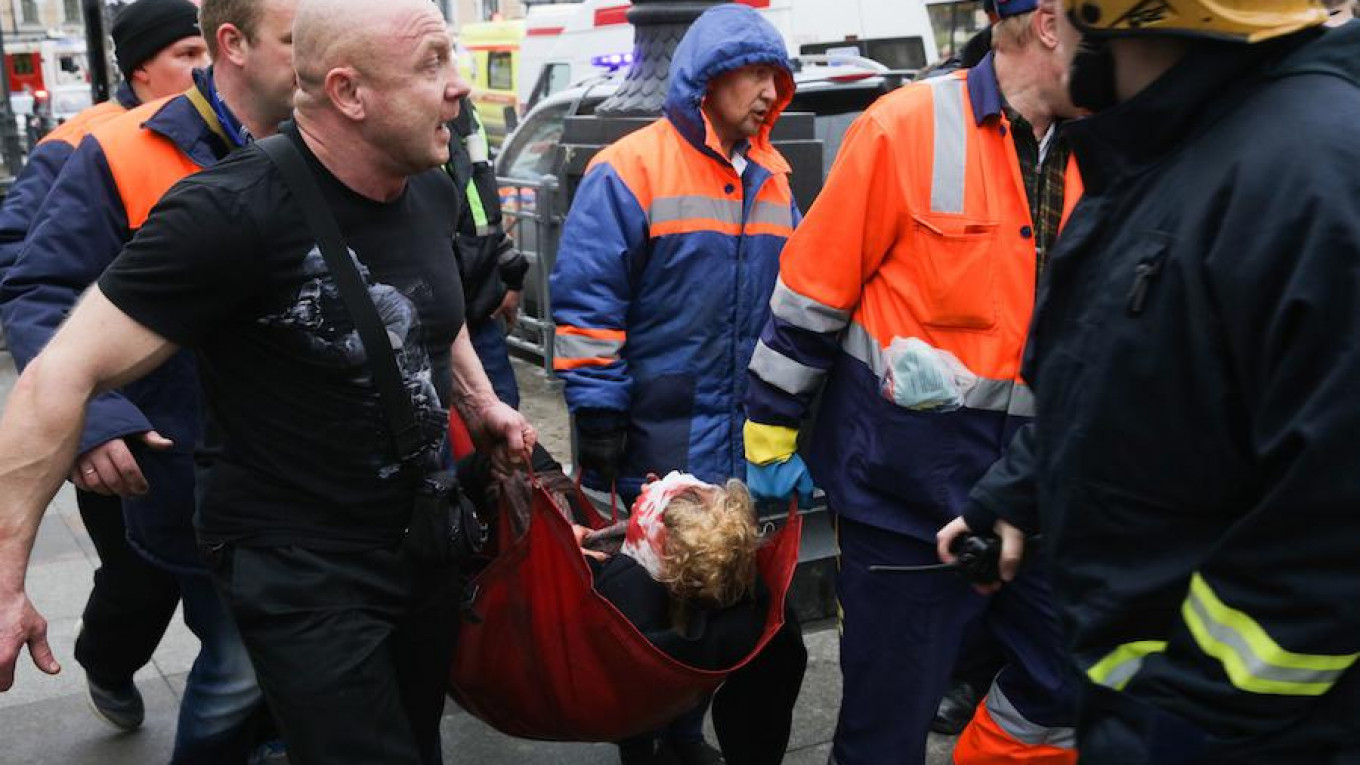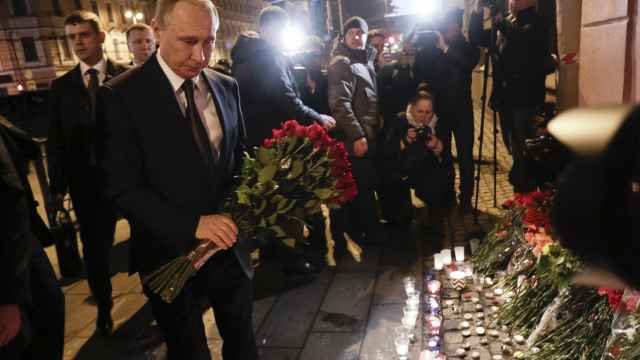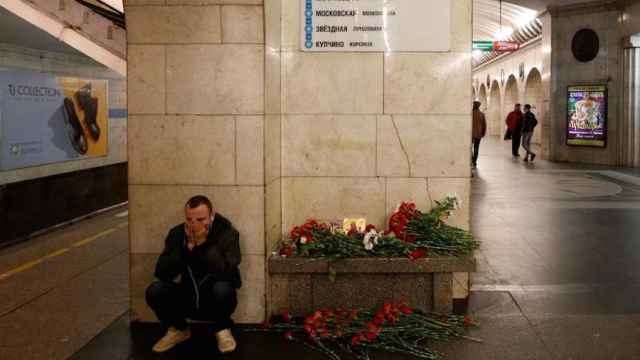Two days after a gruesome terror attack took 14 lives in the St. Petersburg metro, the circumstances of the bombing are still largely a mystery. Authorities have identified the main suspect as a 22-year-old Akbarzhon Dzhalilov, a Kyrgyz-born Russian citizen who detonated a homemade explosive in a subway car.
The primary working theory describes Dzhalilov as a lone suicide bomber, which would explain why no one has claimed responsibility for the attack. Although reportedly connected to Islamic State (IS)* recruits from his native Kyrgyzstan, Dzhalilov’s motivations and affiliations remain unclear.
However, the IS connection looks plausible — Russia has already fallen victim to terror attacks since entering the war in Syria. In Nov. 2015, a Russian plane flying from Egypt was downed by a bomb, killing all 224 people on board. In December, Russia’s Ambassador to Turkey, Andrei Karlov, was shot dead in Ankara. If Dzhalilov’s IS ties prove true, the explosion in St. Petersburg will be the first IS-connected terror attack on Russian soil.
Russia is used to terror — to the extent that any country can get used to it. Since the mid-1990’s, Moscow and several southern cities have been routinely targeted by terrorists emanating from the North Caucasus. In 1999, explosions demolished two Moscow apartment buildings, killing 224 and spreading fear across the city. In 2002, a Moscow theater hostage crisis resulted in 170 deaths.
In 2004, more than 1000 people were taken hostage by militants at a school in the southern city of Beslan. Over 300 people — mostly children — lost their lives in the course of a bungled rescue operation. It was, undoubtedly, Russia’s most horrific modern tragedy.
From the mid-1990’s until the mid-2000’s, Russia fought two consecutive wars in the North Caucasus republic of Chechnya, and the associated threat of terror was an integral part of Russian politics.
The war on terror is widely believed to have brought Vladimir Putin to power. However, Alexei Levinson, a sociologist from the independent Levada Center pollster, opposes that assumption.
“In 1999, after the explosions frightened Moscow, it was not Putin’s response to terror that boosted his rating. Contrary to popular opinion, terror [alone] does not mobilize the nation,” he says.
Rather, Russia’s leadership learned to use the war on terror for its political purposes. The deadly 2002 hostage crisis at Moscow’s Dubrovka Theater was used by the Kremlin as a pretext to tighten control over national television. After the Beslan tragedy, the authorities revoked the direct election of Russia’s governors and parliamentarians. Since then, the nation has learned to expect a crackdown after terror.
In 2004, right after Beslan, a massive wave of anti-terror rallies was organized across Russia. More than one hundred thousand people took to the streets in Moscow alone in a mass demonstration largely planned by the authorities. The purpose was clear: to show that the nation was responding to terror by uniting around its leadership.
Thirteen years later, the approach remains largely the same. On April 4, the Kommersant newspaper reported that the Kremlin was planning anti-terror rallies across Russia for April 8 in response to a deadly bomb attack in St. Petersburg. “Governors are being asked to round everyone up,” a source close to the Kremlin told the newspaper.
It is hardly surprising that the terror attack in St. Petersburg would affect politics. Now, the Kremlin is naturally trying to take the lead. It is unclear if this will yield results.
“The question is: Who is the audience for these rallies?” says Levinson. “It’s very hard to make this into an efficient political tool.”
Russia is familiar with terror. While the people of St. Petersburg showed unexpected solidarity and compassion after the attack, in Russia the public tends to treat such an event as they would an earthquake: a shocking, tragic occurrence, but not a game-changer.
“The most likely scenario is that, in a few weeks, it will slip from the nation’s memory,” says political analyst Mikhail Vinogradov.
* IS is a terrorist organization banned in Russia.
A Message from The Moscow Times:
Dear readers,
We are facing unprecedented challenges. Russia's Prosecutor General's Office has designated The Moscow Times as an "undesirable" organization, criminalizing our work and putting our staff at risk of prosecution. This follows our earlier unjust labeling as a "foreign agent."
These actions are direct attempts to silence independent journalism in Russia. The authorities claim our work "discredits the decisions of the Russian leadership." We see things differently: we strive to provide accurate, unbiased reporting on Russia.
We, the journalists of The Moscow Times, refuse to be silenced. But to continue our work, we need your help.
Your support, no matter how small, makes a world of difference. If you can, please support us monthly starting from just $2. It's quick to set up, and every contribution makes a significant impact.
By supporting The Moscow Times, you're defending open, independent journalism in the face of repression. Thank you for standing with us.
Remind me later.







